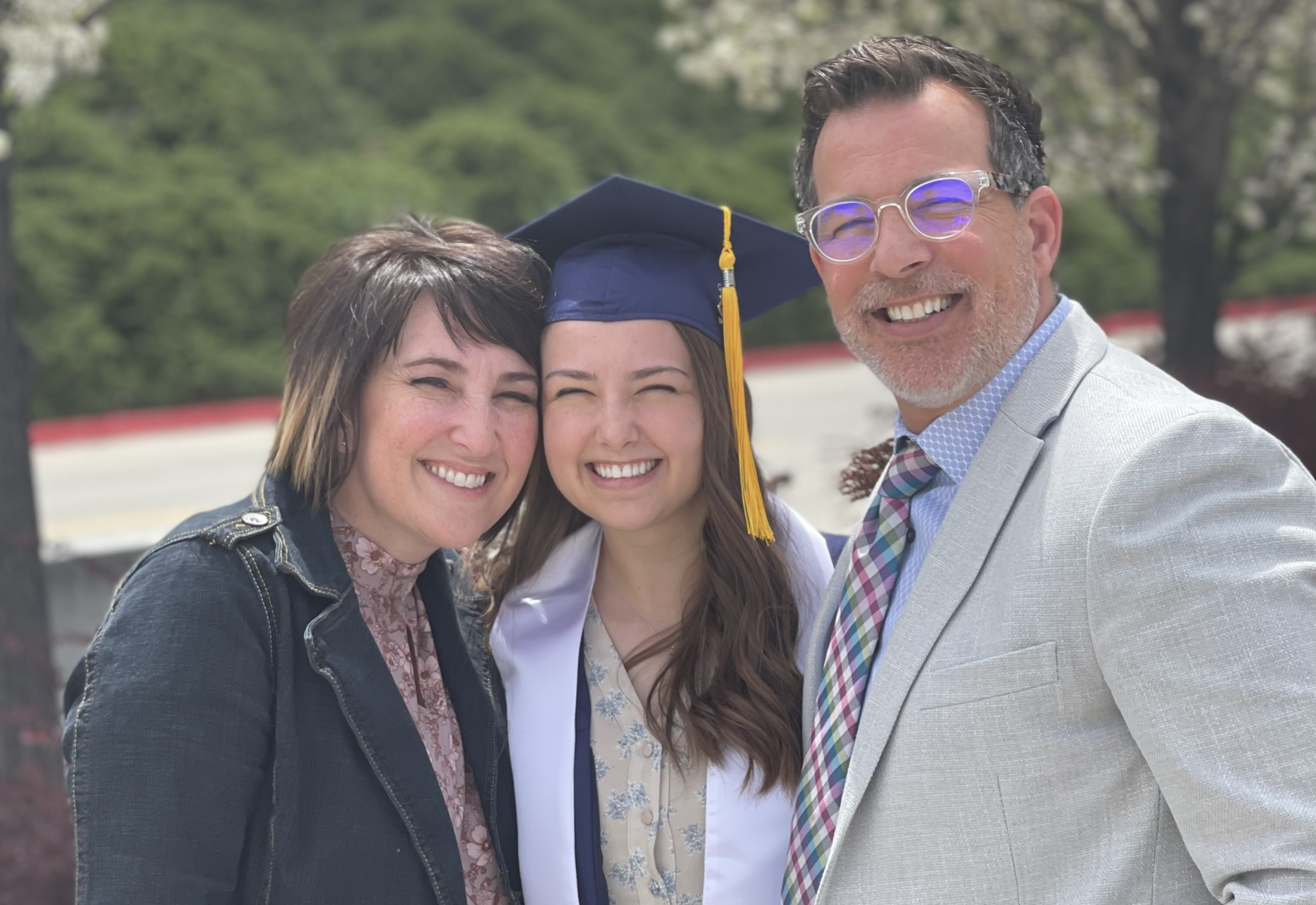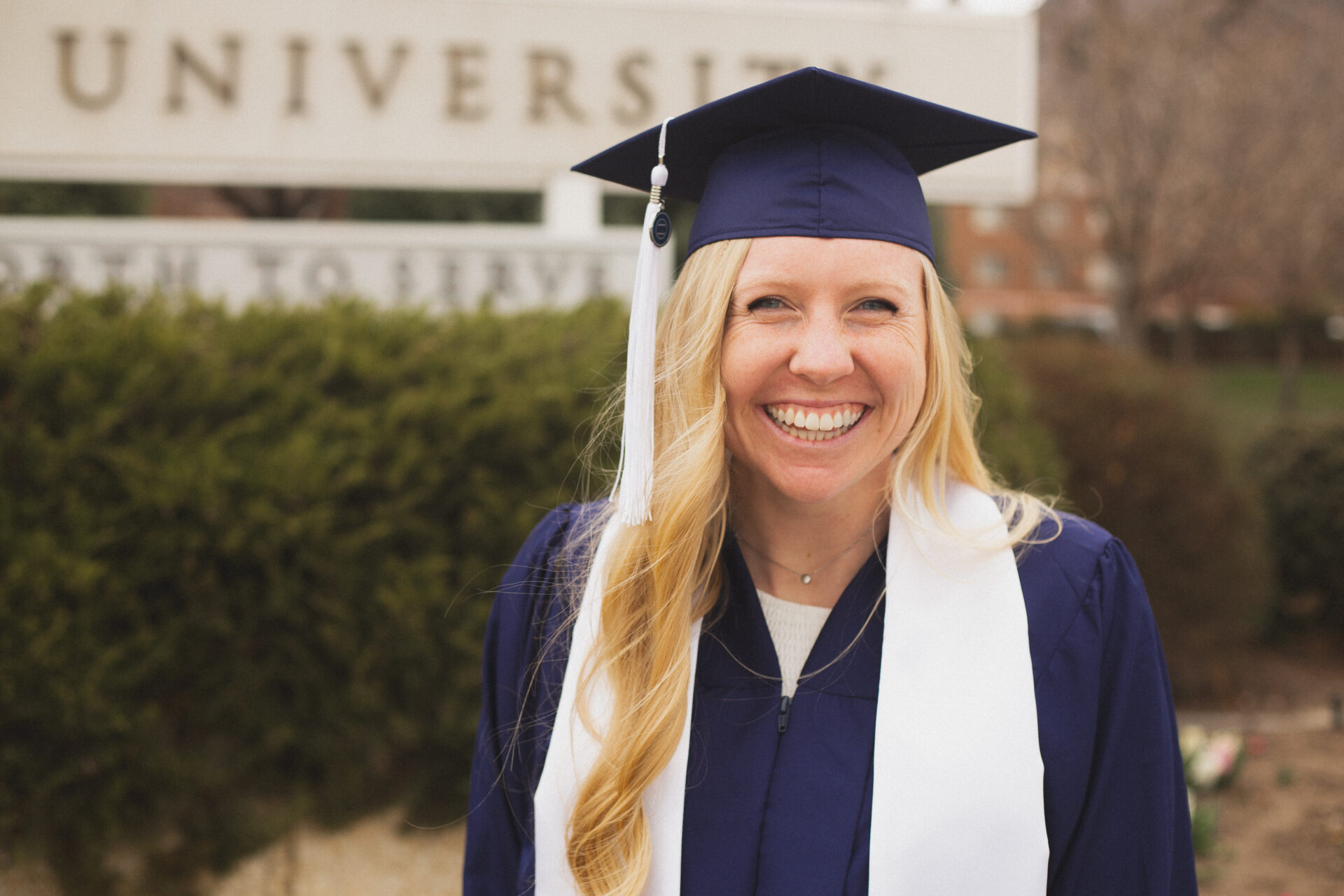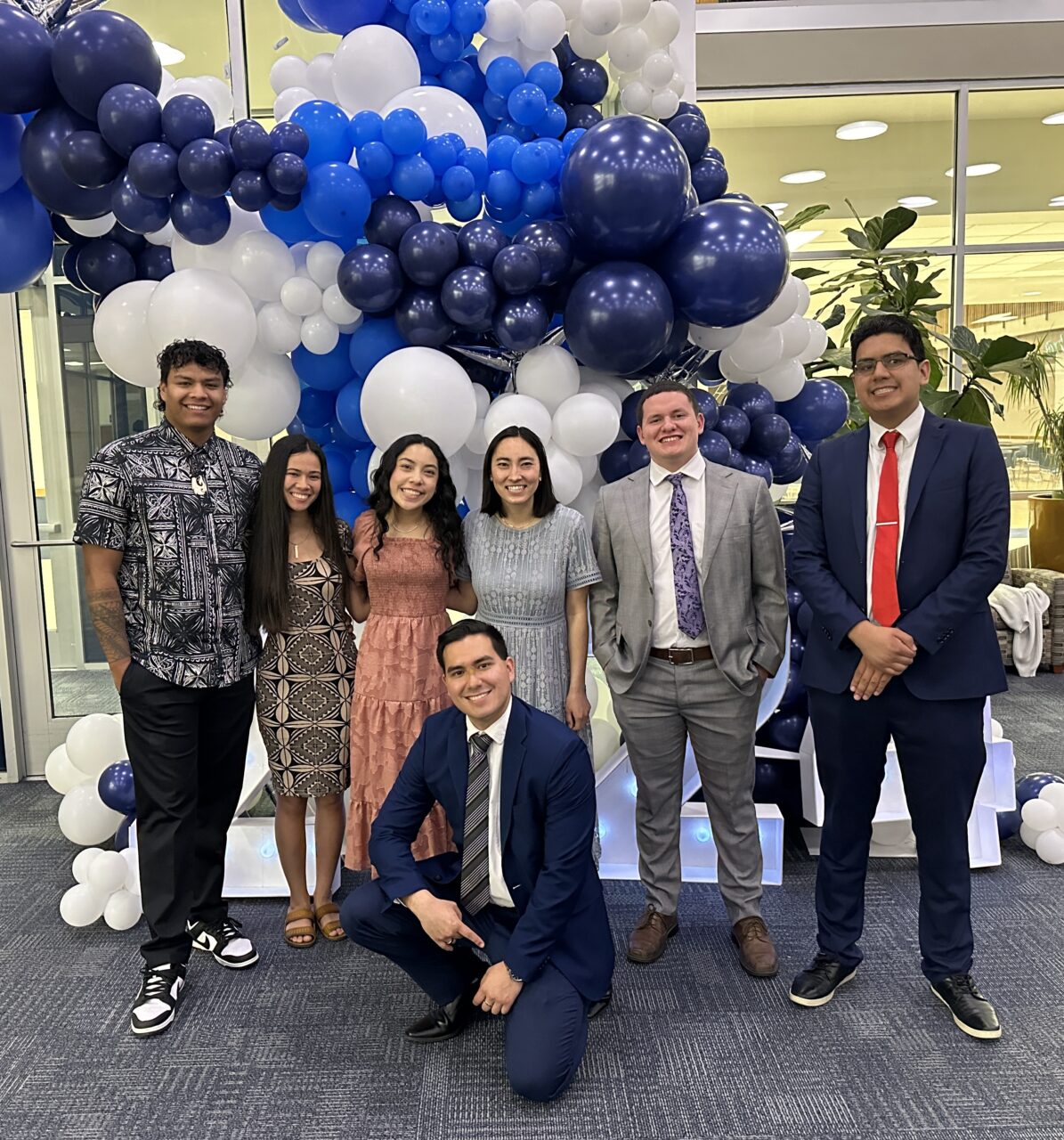Struggles and Successes: first-generation students at BYU

Graduating senior Alex Muti never planned on going to college, but his life changed when BYU offered him an athletic scholarship to play football.
After working hard to get the grades he needed for admission, Muti was accepted to BYU to play football, only to be injured and forced to quit athletics.
Muti was faced with a choice: drop out of college and return home to work, or push through and receive his higher education. Ultimately, he chose to stay at BYU.
Muti grew up in Hawaii and is a first-generation college student, meaning neither of his parents received college degrees. A recent BYU magazine article reported that 10-12% of students on BYU campus are first-generation college students, compared to 30% of students nationwide.
Muti said being a first-generation college student comes with unique challenges.
“In the beginning, it’s like walking in darkness … you try to call family members or your parents and explain what you’re going through … and it’s like, you can’t get help from them, they don’t know anything either,” Muti said.
Muti said his experience as a student-athlete provided him with many opportunities, but those did not last after his injury.
“There were a lot of resources I did not know were available just because I had the athletic experience where everything that we needed was brought to us. So when I stopped playing football, it was kinda like ‘shoot, now where are all these resources?’” Muti said.
Bri Lewandowski, a first-generation college student who transferred to BYU from BYU—Hawaii, echoed Muti’s thoughts.

“I’m sure that there were a lot of resources, but I just felt so overwhelmed by how big the university was that it felt like I didn’t even know that they were accessible,” Lewandowski said.
Lewandowski did note that she was not very conscious of her status as a first-generation student until later on in her education.
“In a world where after-high school education is so normalized, it doesn’t feel like a huge deal to be first-gen,” Lewandowski said.
In addition to a lack of resources, some first-generation college students reported a lack of emotional support.
“I always have felt very supported from my family, but I think that being a first-generation college student, there isn’t a lot of understanding from my parents,” Kailey McBride said.
McBride, hailing from Idaho, graduated from BYU with both her bachelor’s and master’s degrees. She said she found herself applying to college because that’s what all her friends were doing.
“I didn’t understand the purpose of (college), I didn’t understand what I wanted to study … I just kind of followed the crowd,” McBride said.
An article in the Journal of College Student Retention found that first-generation college students are 71% more likely to leave college in their first year than non-first-generation students, even after controlling for gender, race, family income and high school GPA.
Sam Buckhoff, a junior studying psychology, spoke to the challenge of staying in school as a first-generation student.

“Seeing how successful my parents are without going to college sometimes makes it feel like a waste of time,” Buckhoff said.
Buckhoff said she never planned on attending college but applied for two schools last minute. Once she was accepted to BYU, she started to realize college could be a real possibility.
Josie Zenger, a graduating sociology major from New York City, commented on the value that first-generation students bring to a campus and the importance of flipping the deficit model.
“It’s not about (first-gen students) being at risk of dropping out of college, it’s the university is at risk of losing students,” Zenger said.
Dr. Ben Gibbs is one of the faculty members at BYU working to reduce the risk of losing first-generation students by helping them participate in extracurricular activities such as RA-ships, internships and study abroad programs.
“I feel like some of the most significant learning experiences on this campus are the least accessible to first-generation college students,” Gibbs said.
In the fall of 2023, Gibbs took a group of students on a study abroad to the BYU London Centre, 20% of whom were first-generation students. Gibbs said he spent six months recruiting first-generation students for the program and finding funding for them.
Several years ago, Gibbs worked with research assistants to compile a resource map for first-generation students. Gibbs said the team audited each college on campus by calling or emailing to ask what resources the college had available for first-generation students. Gibbs reported that some colleges knew right away what resources were available, while others took up to six emails before the research team was connected to someone knowledgeable about the resources.
“I think there’s been some reluctance or limited awareness that we need to provide more or different resources for students who are not familiar with the institution of higher education,” Gibbs said.
Gibbs offered several suggestions for how individuals can support first-generation students at BYU, the first of which is to name the issue.
“I think most of us understand and recognize that college and high education is hard and so I think we can minimize other people’s struggles by saying ‘well it’s hard for everybody,’” Gibbs said.
Next, students can enroll in a sociology class. Gibbs said sociology classes explore real-world issues in a “sobering but inspiring” manner.
Finally, students can join the BYU First-Generation Student Organization. Gibbs helped start the organization several years ago, serving as the advisor. Muti is now the president of that organization.

“The purpose of the club is to show first-generation students, as well as non-first-generation students … a place outside of home,” Muti said.
Muti also said the organization strives to show students resources available on campus. For instance, during one club activity, librarians toured the group around the Harold B. Lee Library, showing them the 3D printers, theater rooms, sewing machines and more.
Another event put on by the organization is the first-generation graduation celebration. Daidre Hulick, the New Student Orientation administrator in BYU’s Office of First-Year Experience, said the organization began this tradition three years ago. This year’s celebration had the biggest turnout with roughly 300 students in attendance.
“It’s kind of nice for them to see the accomplishments of the other first-gen students and hopefully it gets them excited, and if they’re feeling discouraged, it gives them some encouragement to continue on,” Hulick said.
The Office of Belonging is another place invested in helping first-generation students succeed.
“The Office of Belonging is a great centralized way for a student to meet with officers there who may have more knowledge about what’s available on campus,” Gibbs said.
Those interested can find more resources on their website.

